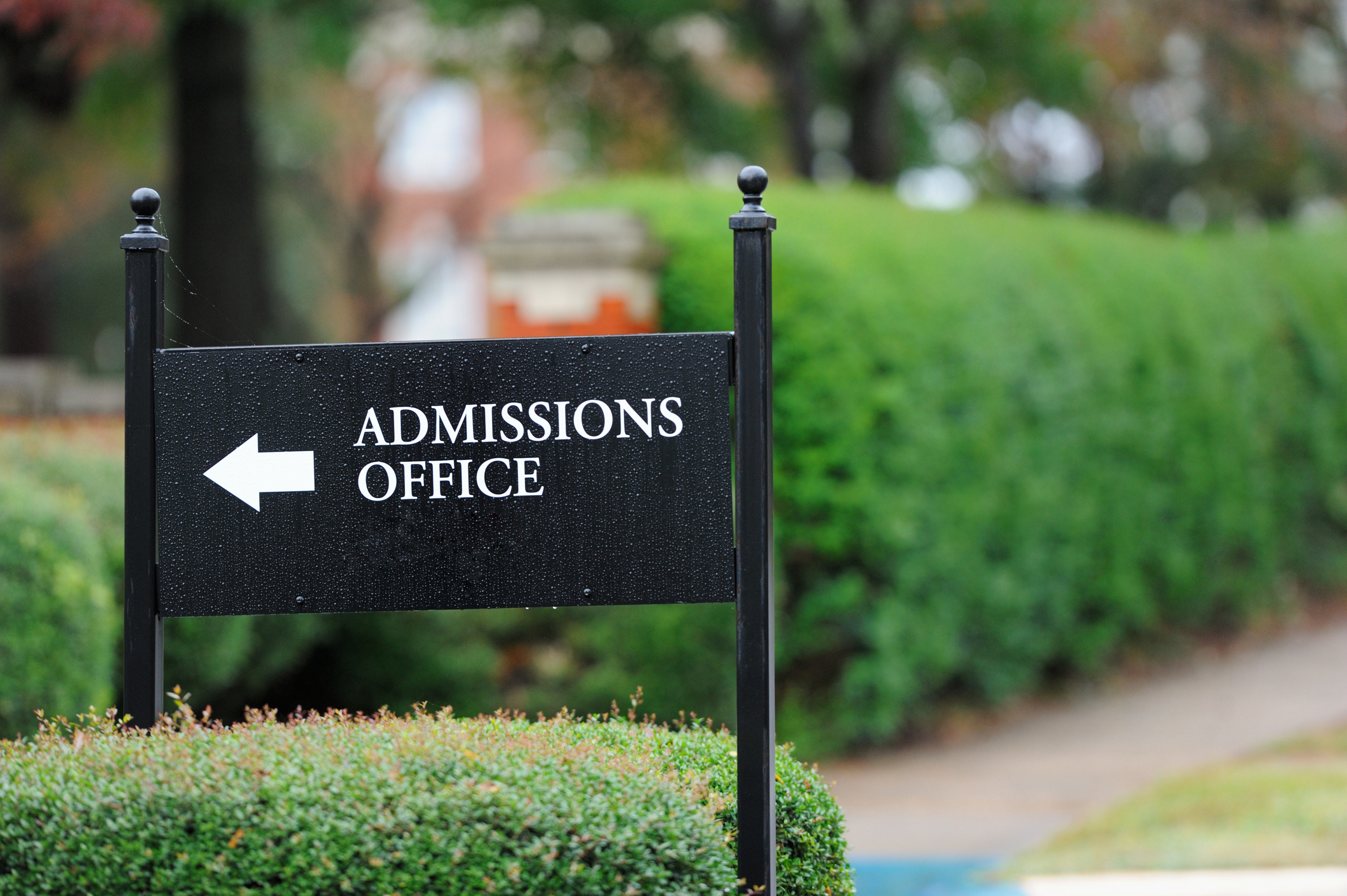Should the school day start later? It's complicated.
Research says school start times post-8:30 a.m. are better for sleep-deprived adolescents, but the financial and logistical hurdles are hard to ignore


A free daily email with the biggest news stories of the day – and the best features from TheWeek.com
You are now subscribed
Your newsletter sign-up was successful
For years, weary-eyed tween and teenaged students — particularly those in middle school and high school — have filed into their respective educational buildings somewhere between 7:15 and 8:00 a.m., at times before the sun has even risen to greet them. But a growing body of medical research has begun to poke holes in that status quo, as scientists investigate how exactly rest (and a lack thereof) can affect the nation's sleep-deprived pupils. Should teenage students, who require more shuteye than their adult counterparts, be forced to learn on a schedule that seemingly ignores their needs? It is an ongoing academic discussion and flashpoint, as cyclical as the school year itself, and one that touches on issues of public health, child care and the question of around who, exactly, schooling in the U.S. is meant to revolve.
When did we start talking about school start times?
Kyla Wahlstrom, a lecturer at the University of Minnesota, was the first to investigate the effects of school start times back in the 1990s. Her research concluded that there is "mounting medical evidence that amount of sleep, time of day and circadian rhythms do play a part in how prepared an adolescent is to learn." In 2014, the American Academy of Pediatrics officially recommended that middle and high schools begin no earlier than 8:30 a.m. as an "effective countermeasure to chronic sleep loss" in teenagers. And shortly thereafter, in 2015 and 2016, respectively, the Centers for Disease Control and Prevention and then the American Medical Association recommended the same.
What are the benefits of later start times?
Studies suggest that a well-rested adolescent (teens require between eight and 10 hours of sleep each night) is at reduced risk of depression, obesity, and substance abuse, and performs stronger academically, among other benefits, Time reported. A later start time also better aligns with teenagers' natural circadian rhythm, which is best synced to fall asleep at 11 p.m. or midnight and then wake up roughly "nine hours later — a timeline that's impossible when classes start before 8 a.m." One 2022 study even found that a delayed start time benefited teachers at a suburban Colorado school district, as well, who said they felt better rested and less stressed with the change.
The Week
Escape your echo chamber. Get the facts behind the news, plus analysis from multiple perspectives.

Sign up for The Week's Free Newsletters
From our morning news briefing to a weekly Good News Newsletter, get the best of The Week delivered directly to your inbox.
From our morning news briefing to a weekly Good News Newsletter, get the best of The Week delivered directly to your inbox.
"Asking a teenager to be awake and trying to absorb information at 8:30 in the morning in some ways is like asking an adult to wake up at 4 o'clock in the morning," neuroscience professor Matthew Walker told NPR last year.
Are there drawbacks?
It's quite a heavy logistical and financial lift. Bus schedules would need altering. Teachers would have to figure out new hours. Sports and extracurriculars might run into roadblocks with games, practices, and meetings, and working parents might have to adjust child care arrangements to pick up and drop their kids off at school in the mornings and afternoons, per Scientific American. These new times "may benefit teenagers, but [they do] not accommodate the lifestyles of single-parent families, families with multiple children who attend different schools, and families where both parents work," Adriana Aguilar, a parent of children in a California district with delayed start times, wrote for the San Diego Tribune in August 2022.
Why are school start times the way they are?
Early schedules are "largely a holdover from when most families didn't have two working parents and thus didn't need to worry about adhering to a 9-to-5 schedule," Time reported. Going further back, it may have also had something to do with agriculture, and the need to get teens to and home from school so they could work on the farm before sunset, according to Scientific American. And there was also the decades-old concept of the tiered busing system, which emerged as a means of getting more students to school without breaking the bank. Fewer bus drivers would repeat "multiple loops with staggered start times," and "by convention, high schools often were shifted earlier," Dr. Bert Mandelbaum wrote for the New Jersey School Boards Association.
What are schools doing now?
According to results from the National Center for Education Statistics 2020-21 National Teacher and Principal Survey, the average start time during the 2020-21 school year was 8:07 a.m. among public secondary/high schools and 8:11 a.m. among public middle schools. Nine percent of public high schools had start times before 7:30 a.m., versus 6% of middle schools.
A free daily email with the biggest news stories of the day – and the best features from TheWeek.com
In June, Florida Gov. Ron DeSantis (R) signed a bill mandating that middle school classes begin at or after 8 a.m. and that high school instruction starts at least 30 minutes after that, at 8:30 a.m. The law will go into effect for the 2026-2027 school year to give districts time to adjust. California has already implemented a similar state-wide rule, and Seattle Public Schools likewise made a change back in 2015. Other states, like New York and Tennessee, have proposed their own legislation.
"A half-hour doesn't seem like a lot of time, but it makes a big difference, Jessica Baltaxe, a then-11th-grade student in California told U.S. News & World Report last August. "Many students go to bed late because of the demands of their coursework and extracurriculars, so by providing extra time in the morning it sets them up to have a more productive day."
Brigid Kennedy worked at The Week from 2021 to 2023 as a staff writer, junior editor and then story editor, with an interest in U.S. politics, the economy and the music industry.
-
 Political cartoons for February 15
Political cartoons for February 15Cartoons Sunday's political cartoons include political ventriloquism, Europe in the middle, and more
-
 The broken water companies failing England and Wales
The broken water companies failing England and WalesExplainer With rising bills, deteriorating river health and a lack of investment, regulators face an uphill battle to stabilise the industry
-
 A thrilling foodie city in northern Japan
A thrilling foodie city in northern JapanThe Week Recommends The food scene here is ‘unspoilt’ and ‘fun’
-
 The video game franchises with the best lore
The video game franchises with the best loreThe Week Recommends The developers behind these games used their keen attention to detail and expert storytelling abilities to create entire universes
-
 The buzziest movies from the 2023 Venice Film Festival
The buzziest movies from the 2023 Venice Film FestivalSpeed Read Which would-be Oscar contenders got a boost?
-
 America's troubling school bus driver shortage
America's troubling school bus driver shortageSpeed Read Kids are heading back to school, but they might be having trouble getting a ride
-
 5 college admissions trends to watch out for this year
5 college admissions trends to watch out for this yearSpeed Read College advisers and admissions experts say these trends will shape the 2023-2024 admissions cycle
-
 What's going on with Fyre Festival II?
What's going on with Fyre Festival II?Speed Read Convicted felon Billy McFarland claims the music festival will happen, for real this time
-
 The answer to rising home prices: smaller homes
The answer to rising home prices: smaller homesSpeed Read Builders are opting for fewer rooms and more attached styles as frustrated homebuyers look for affordable options
-
 5 illuminating books about the video game industry
5 illuminating books about the video game industrySpeed Read Cozy up with a few reads that dig into some of the most fascinating parts of video game history
-
 Everything we know about the final season of 'Stranger Things'
Everything we know about the final season of 'Stranger Things'Speed Read The Netflix hit will turn things up to eleven in its final bow ... eventually
